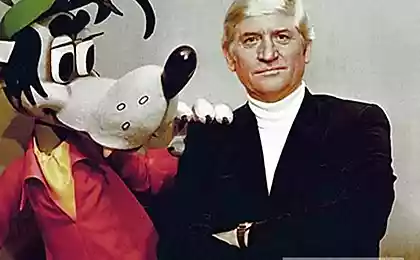405
A guide to psychology. Issue 12. Motivation and Purpose: What Moves People Ahead
Description: This article reveals the nature of motivation and purpose in human behavior. The author explains how internal and external factors push us to achieve success, and offers tools to help maintain a high level of enthusiasm in everyday life.
List of all articles in the cycle

Introduction
What causes some people to persevere to reach the highest peaks, while others seem to
Do you have the same ability and not have the same determination?
The question of where the inner “engine” of achievement comes from has occupied the minds of philosophers and psychologists for centuries.
Modern research confirms that motivation It is a complex mix of biological, social and personal factors.
In this article, we're going to look at how this force is formed that drives us forward.
And what techniques will help to keep inspiration on the way to your goals.
We will talk about different types of motivation, how to set goals so that they really work for your success.
And how not to get lost in a world where external stimuli sometimes challenge our inner values.
One of the most important arts in life is to learn to balance.
between what we want and what the environment expects of us.
Main part
The Evolution of Understanding Motivation: From Instincts to Conscious Goals
If we turn to the history of psychology, then the first explanations of human motives were associated with instinctively.
Scientists believed that behavior is governed by innate “programs” that dictate our responses.
However, as science progressed, the more multifaceted nature of human motivation became apparent.
We do not only follow biological needs (e.g., food, recreation, or reproduction).
We strive for social recognition, self-actualization (according to A. Maslow), and even the search for new impressions.
The modern theory of motivation takes into account that we can consciously manage our aspirations, choosing what to do and what goals to pursue.
Of course, we are left with the “voices” of evolution—the basic needs of security, of belonging to a group, of respect.
But a modern person often faces a wealth of choices: from a career as an IT specialist to practicing extreme sports.
And that's where it becomes important to understand what drives us forward and why.

Internal and external motivation: where to find the middle ground?
In psychology, the model of the division of motives into external and internal.
Extrinsic motivation refers to rewards or punishments from outside:
Work for a salary, study for a good grade, the desire to get approval from others.
Intrinsic motivation is when an activity is interesting and valuable in itself.
It brings pleasure and expands personal horizons, regardless of external evaluation.
Both types of motivation have a right to exist, but intrinsic motivation usually leads to more stable motivation.
and profound results. If you don’t make music to make money,
It's because you just love the sound of an instrument, your chances of success are higher.
But sometimes external incentives are needed to help maintain “discipline” – whether it’s project deadlines.
Or the promised reward. It's important to find a balance.
External factors support internal interest rather than suppress it.
Goals: How to formulate them correctly?
If motivation is fuel, then goal This is the “route” we are traveling on.
But a goal becomes truly “working” when it meets the following criteria:
- Specificity. The phrase “I want to get better” is too vague.
Replace it with “I want to learn English to Advanced level in a year.” - Measurability. The goal must be measurable: are there qualitative or quantitative indicators?
For example, pass an exam, run 10 km, read 50 books a year, etc. - Atmosphere of attainability. The tasks we set must be realistic.
Too high expectations quickly extinguish enthusiasm. - Relevance. It is important that the goal aligns with your personal values and life priorities.
It wasn't imposed by anyone. - Time limit. Clear deadlines help maintain focus. Until the end of the month, in six months.
It sets the rhythm and structures the process.
It helps to correctly formulate tasks. If you want your determination
You can apply these criteria to any major projects in your life.

Tools to Maintain Motivation
Even the most purposeful people have feverishness.
How not to leave everything halfway, when it seems that the strength is no longer there or the interest has faded?
- Regular reflection. Keep a journal of progress, noting small successes and difficulties.
This helps to keep a clear picture of how far you have come. - Reinforcement. Use small rewards for intermediate results.
It can be anything from a delicious dessert to a short trip. - The Why Tool. Ask yourself, “Why is this important to me?”
Regular reminder of motives enlivens the inner craving for results. - Group support. Connect with people who share your interests and aspirations.
The exchange of experience and emotional “recharging” greatly facilitate the path to the goal. - Flexible adaptation. If your circumstances or values change,
Don’t be afraid to review your goals to keep them relevant and inspiring.
Obstacles on the way: laziness, procrastination and insecurity
Sometimes. goal-setting And motivation faces major barriers.
Among which laziness, procrastination and low self-esteem are the most common.
Laziness is often a signal that we are emotionally “overloaded” or that the goal doesn’t really interest us.
Procrastination may indicate a fear of failure or a desire for a “perfect” outcome.
And self-doubt leads to the fact that we sabotage our own plans, fearing that still “we will not cope”.
If you feel stuck, ask yourself:
“Do I really want it, or do I just need it?”
If the answer is “should”, but the soul does not lie, it may be time to reconsider the motivation.
And if the goal is really important, think about what scares you.
Fear of making a mistake? Lack of knowledge? No plan? The solution of the problem specifies the problem and removes part of the psychological burden.
Conclusion
Human life is filled with motives and goals that we set and strive for.
Without them, any activity loses its depth, and our internal “engine” can stall.
However, it is important to remember that motivation Not a static quantity, but a living process.
It requires care, reflection and the ability to learn from your mistakes.
If you want to be truly purposeful, start by being clear about what you value.
Then learn how to correctly set tasks, regularly check your progress and do not be afraid to adjust the course.
Yes, external factors (e.g. praise, status, material possessions) can motivate, but true energy is always born from within.
Our passion, our curiosity, or our desire for new horizons.
In the end, motivation is a kind of art of “lighting” yourself anew every time.
And if you feel that enthusiasm is fading, remember: it is within your power to reformulate the goal.
Find support or consider a new plan of action. The most important thing is not to turn temporary difficulties into permanent abandonment of dreams.
Real determination is not based on the absence of obstacles, but on the ability to overcome them.
Glossary
Motivation
The system of internal and external factors that stimulate and direct human behavior to achieve certain goals.
Internal motivation
Striving for activity based on personal interest and pleasure in the process rather than external reward.
External motivation
Behavior stimulated by external factors (money, recognition, punishment, evaluation of others).
Smart.
A method of setting goals based on the principles of specificity, measurability, achievability, relevance and time constraints.
Procrastination
A systematic tendency to put off important tasks for later, often out of fear of failure or perfectionism.
Self-actualization
The tendency to fully reveal one’s potential and creative abilities, described by Abraham Maslow.
A guide to psychology. Issue 11. Fear, Stress, and Overcoming: How to Deal with Pressure
A guide to psychology. Issue 13. Thinking Mistakes: How to Avoid the Traps of Your Mind























